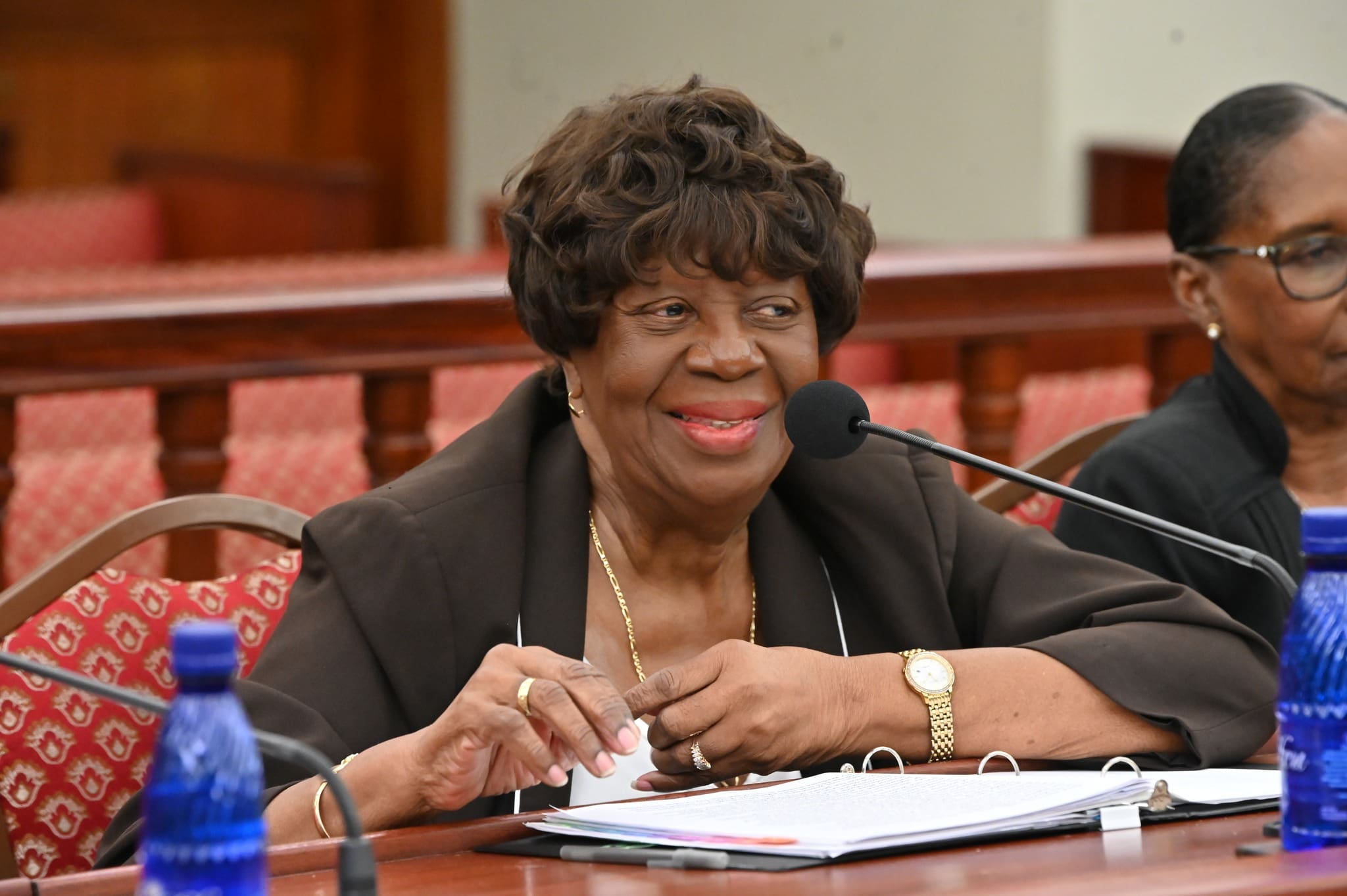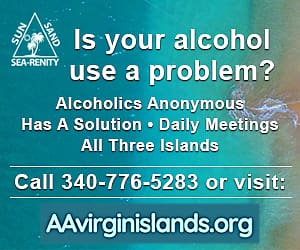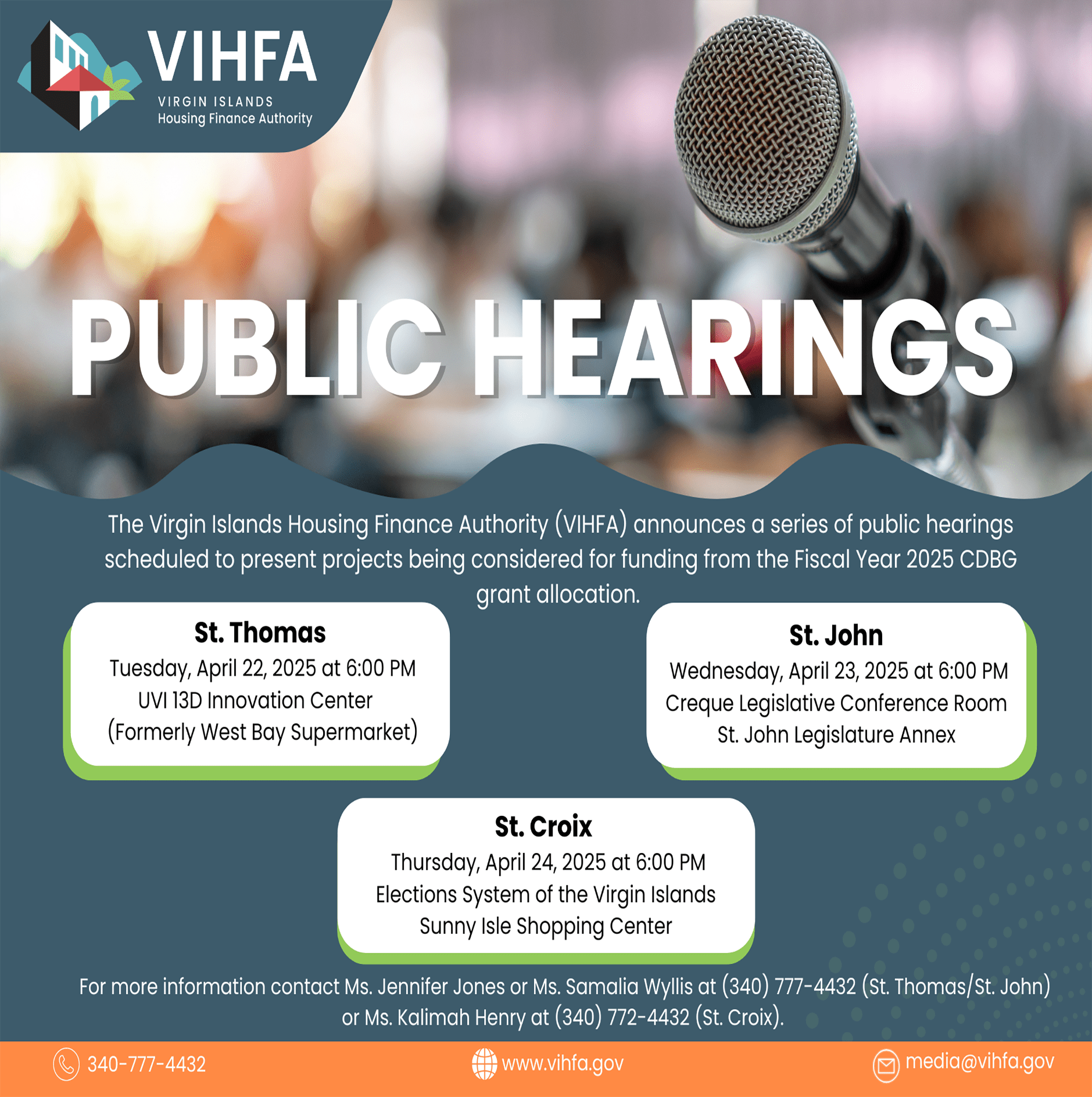
The Senate’s Committee on Government Operations, Veterans Affairs, and Consumer Protection approved a bill Tuesday that would rename the Virgin Islands Human Services Department building to honor longtime public employee and former Commissioner Juel Turnbull Rhymer-Molloy.
Molloy’s service to the territory dates back to the late 1960s when she returned from college in Virginia to work for the Virgin Islands Legislature, said Sen. Ray Fonseca.
After graduate school at the University of Pennsylvania and at Columbia University in New York, Molloy returned home again for a 17-year stint at the Virgin Islands Community Action Agency, serving as executive director for 14 years.
Molloy attempted to retire from the Human Services Department in 1994 but soon found herself an assistant to Gov. Roy Lester Schneider, then helping Sen. Lorraine Berry, then serving as chief of staff for Gov. Charles Turnbull. A second retirement attempt ended with Molloy working as a consultant to Gov. Kenneth Mapp.
She’s now fully retired, Fonseca said.
Former co-worker Sedonie Halbert described Molloy as a fierce advocate for the territory’s children, elderly, and impoverished people who held government people to account. Halbert said Molloy ensured federal funds were used properly and local funds were stretched as far as possible.
When Molloy started at the Human Services Department some employees bristled at the efficient, exacting new director, Halbert said.
“Opinions and attitudes gradually changed as staff recognized that the intent of the new, no-nonsense commissioner was to improve the department’s operation and ensure that everyone had access to the resources they needed to do their job,” she said.
Another co-worker, Joanne Barry, said Molloy inspired young people with her professionalism and dedication.
“I was struck by her meticulous attention to detail, her ability to extract critical specifics, and her remarkable shorthand note-taking skills,” Barry said. “It was her exceptional problem solving abilities that truly strengthened our bond.”
A co-worker in Turnbull’s administration, Whitman Browne, said Molloy had outstanding traits: quality leadership, adept problem solving, a lack of arrogance, a commitment to community, being a good friend, and an ability to see beyond ethnic or geopolitical differences.
Former Senator and former Gov. Turnbull spokesperson James O’Bryan said Molloy was an expert at handling the pressure of sometimes difficult situations.
Molloy worked on many government and community boards, including the St. Thomas/St. John Crime Committee, the Business and Professional Women’s Club, the National Community Action Executive Directors Association, the National Head Start Board, the Drug Policy Board, the Governor’s Committee on Crime Prevention Board, the Economic Policy Board, and the Virgin Islands Housing Authority Board of Commissioners, Fonseca said.
Molloy said her duties working for the League of Women Voters was among the most challenging. It required balancing the wishes of the executive branch of government and legislative branch.
It wasn’t just Molloy who sacrificed for the territory, she said. Once she retired for good, Molloy was able to spend more time with her son. When she learned of problems he had faced, she asked why he had not come to her for help.
“He said, ‘Mommy, I could not burden you anymore because everybody comes to you: ministers, commissioners, governors, everybody. I couldn’t put any more on you,” Molloy said. “That was tough. That was tough.”
Both bills were forwarded to the Committee on Rules and Judiciary for further consideration.
Later, the committee also approved a bill honoring the territory’s fallen police.
“The Legislature of the Virgin Islands, on behalf of the people of the Virgin Islands, hereby honors, commends, and thanks posthumously Police Detective Delberth Phipps Jr., Police Officer Colvin Terrance Georges Sr., Police Officer Aaron Hodge, Police Officer Akeem Basil “Teddy” Newton, Police Officer Ariel Anton Frett, Police Officer Cuthbert Ezekiel Chapman, Police Officer Steven Alexis Hodge, Police Officer Dexter L. Mardenborough, Police Officer Richard Nicolas Callwood, Patrolman Wilbur Horatio Francis, Patrolman Patrick Emmanuel Sweeney, Patrolman Allan Williams, Patrolman Rudel Albert Parrott, Patrolman Leroy Alvaro Swan, Patrolman Leopold Emanuel Fredericks Jr., and Patrolman Lionel Emanuel Isaac,” said the bill’s sponsor Sen. Diane Capehart.
Sidney Elskoe, assistant commissioner of the Virgin Islands Police Department, said being a police officer was a calling with inherent danger, requiring difficult sacrifice.
“Officers dedicate their lives to upholding the law, ensuring the safety of our neighborhoods, and protecting the freedoms we hold dear. In fulfilling their duties, they embody the principles of integrity, courage, and public trust,” Elskoe said.
He said the officers who died in the line of duty were not just local heroes but recognized nationally by the National Law Enforcement Officers Memorial.
“In the Virgin Islands, the officers we recognize today stood as pillars of strength, courage, and commitment to service. Their contributions to public safety and community well-being went beyond their daily duties. They took on the responsibility of protecting lives, preserving peace, and being the steady presence that residents could depend upon in times of crisis. Their sacrifices leave a legacy that deserves to be memorialized and serves as an inspiration to current and future generations of law enforcement officers,” Elskoe said.
Later in the day, the committee heard testimony from the Licensing and Consumer Affairs Department. Commissioner Nathalie Hodge said that in addition to increased funding for more robust enforcement efforts, the department was planning an investigation into gasoline prices.
Hodge reminded the committee of four amendments to existing law proposed in July: expanding the commissioner’s authority to issue civil citations and enforce penalties, empowering DLCA to adjust licensing fees annually and impose stricter administrative fines for violations, including the ability to issue civil and criminal citations for the same offense, updating references to the Consumer Services Administration and the Alcohol Control Board, integrating these functions into DLCA’s structure for greater clarity and efficiency, and revising existing amendments related to DLCA’s licensing boards for better operational alignment.














